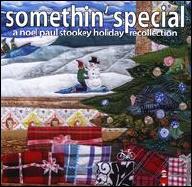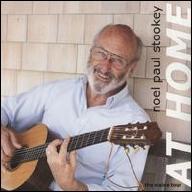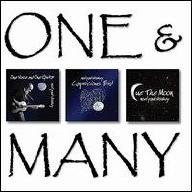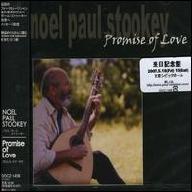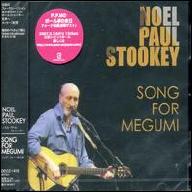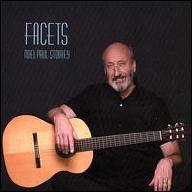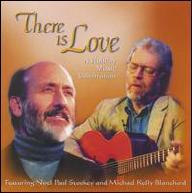Stookey's earliest inspiration came from the rock & roll of the '50s, and he played electric guitar with several teenage rock bands. His witty personality made him popular as a standup comic and he worked as an MC in nightclubs while attending Michigan State University. Although he temporarily moved to Pennsylvania following his graduation, he soon continued on to New York in hopes of becoming an entertainer. Supporting his family by working during the day at a chemical factory, Stookey continued to MC shows in Greenwich Village clubs. On Sundays, he spent hours playing guitar and singing during informal folk music jam sessions in Washington Square Park.
A turning point came when Stookey was invited, along with Peter Yarrow and his upstairs neighbor Travers, to join a folksinging trio that was being formed by Albert Grossman (manager of Yarrow and, later, of Bob Dylan) and record producer Milt Okun. Performing their debut concert at The Bitter End in New York, Peter, Paul and Mary embarked on a decade of nonstop touring and recording. One of the few commercially successful folk acts, PPM recorded eight million-selling albums, including their self-titled debut album, which reached the top of the charts and remained in the Top 20 for two years. In addition to performing several of Stookey's compositions, PPM helped to introduce and popularize the songs of Dylan, Tom Paxton, Gordon Lightfoot, and John Denver. The trio remained politically involved as well, performing at civil rights rallies with Dr. Martin Luther King in Birmingham, Alabama and Washington, D.C. and at numerous anti-Vietnam War demonstrations, fundraisers, and teach-ins.
In 1968, Stookey underwent a religious transformation and became a born-again Christian. Two years later, after the release of a greatest-hits album, Ten Years Together, the trio disbanded, with each member going on to pursue solo projects. Stookey's debut solo album, Paul And..., included "The Wedding Song (There Is Love)," and was the most successful of his solo efforts. "The Wedding Song," written for Peter Yarrow's marriage to Marybeth McCarthy, the niece of senator and onetime presidential candidate Eugene McCarthy, has become a nuptial classic. Moving with his family to South Blue Hill, Maine in 1973, Stookey opened a recording studio and launched a record label, Neworld. Among the albums that he produced and released were the first two albums by Maine-based singer/songwriter David Mallet.
Stookey didn't collaborate again with Yarrow or Travers until 1978 when the trio reunited for a benefit concert, Survival Sunday, that Yarrow organized and produced at the Hollywood Bowl. Their performance was so encouraging that they agreed to resume their partnership. In the following three decades, Peter, Paul and Mary balanced their solo careers with trio recordings and nearly 50 concerts each year, until Travers' 2009 passing due to complications of chemotherapy treatment for leukemia.
Stookey's song "El Salvador," inspired by a PPM tour of Central America, was released as a single in 1985. His tune "For the Love of It All" was recorded with Emmylou Harris and included on the 1996 PPM album Lifelines. In addition to his busy musical career, which included a wide array of solo albums and EPs, Stookey headed up a multimedia organization that specialized in children's computer software, television shows, and music, and -- in the pre-Internet era -- served as systems operator for a Maine-based computer bulletin board run by Celestat. ~ Craig Harris, Rovi


